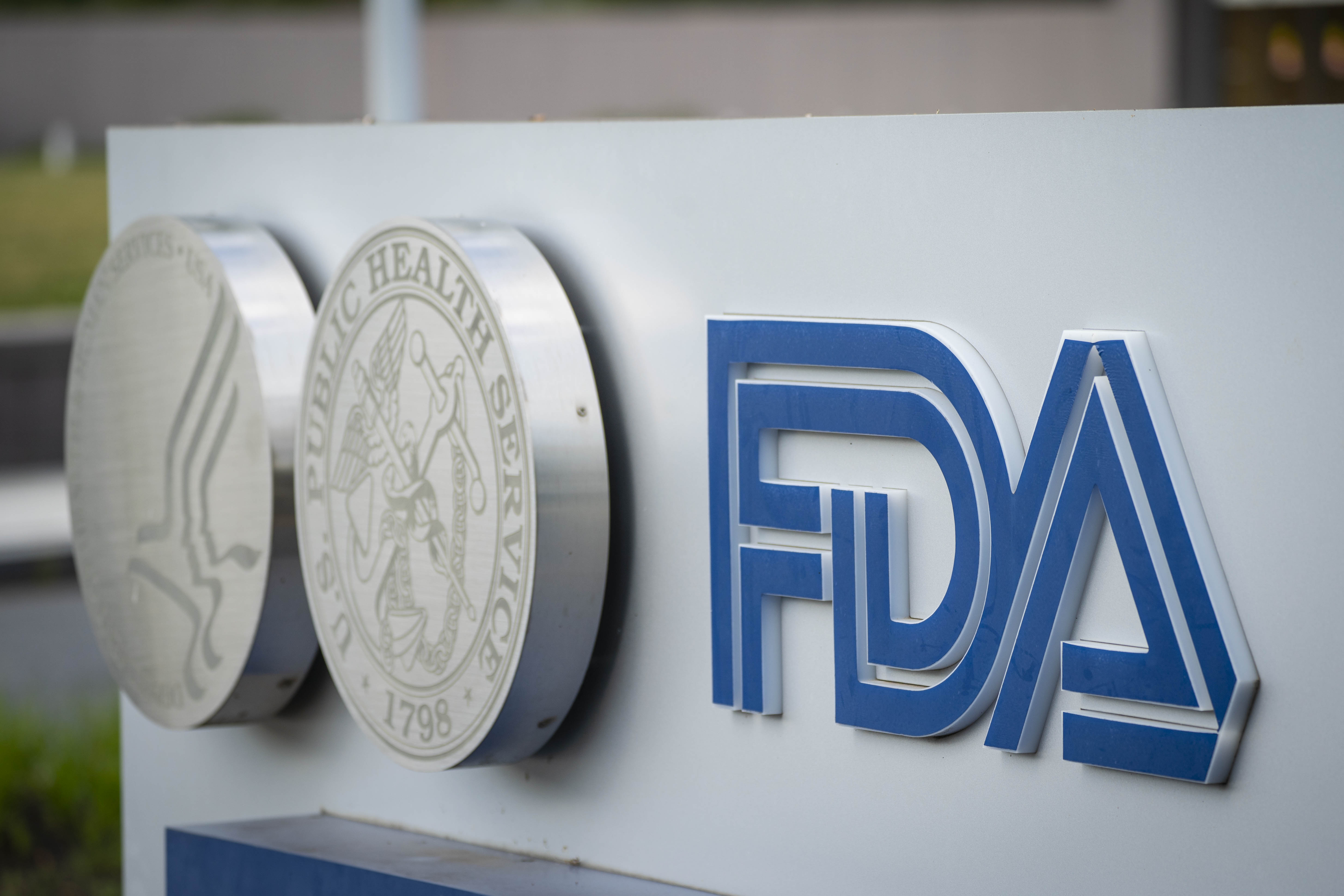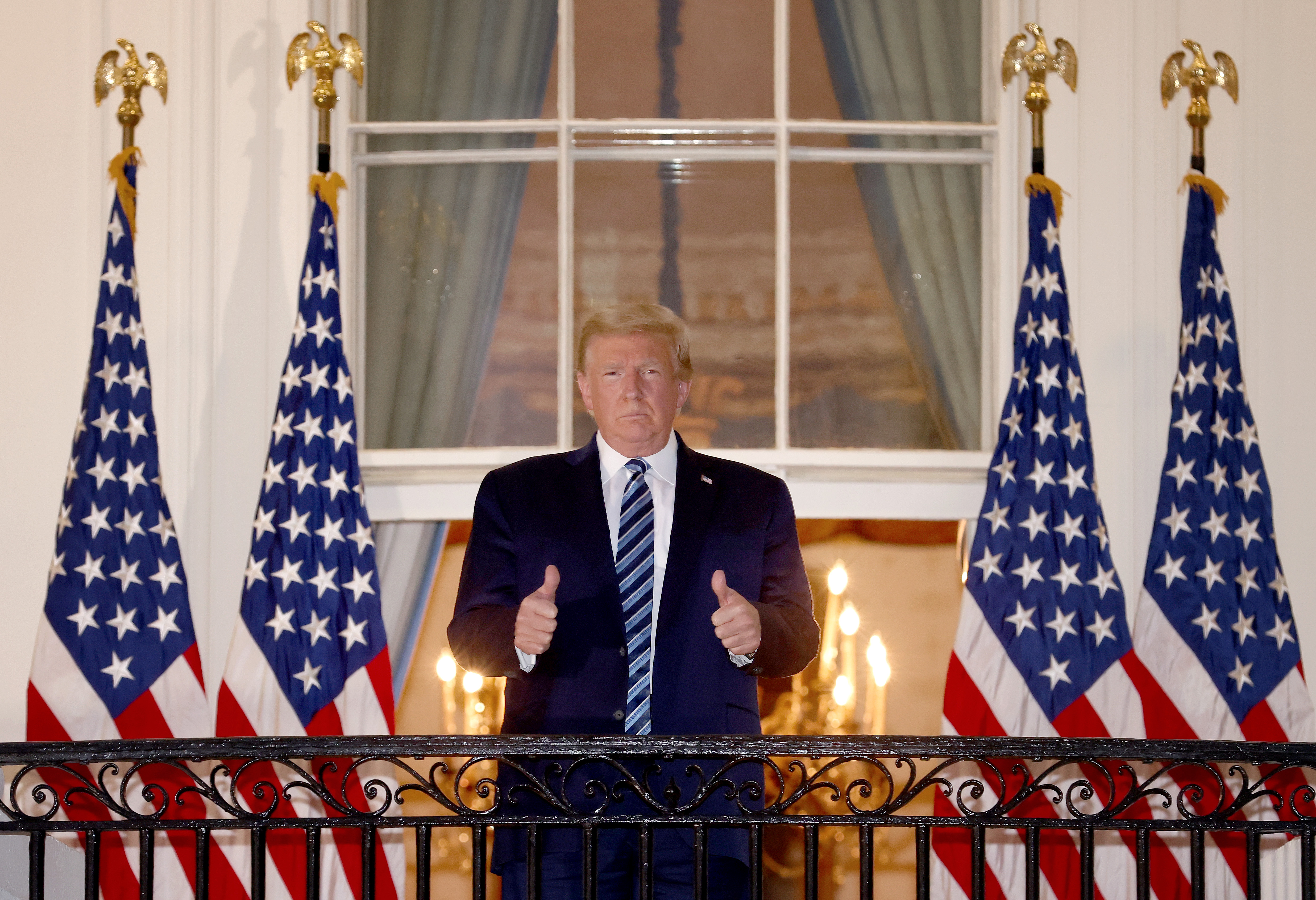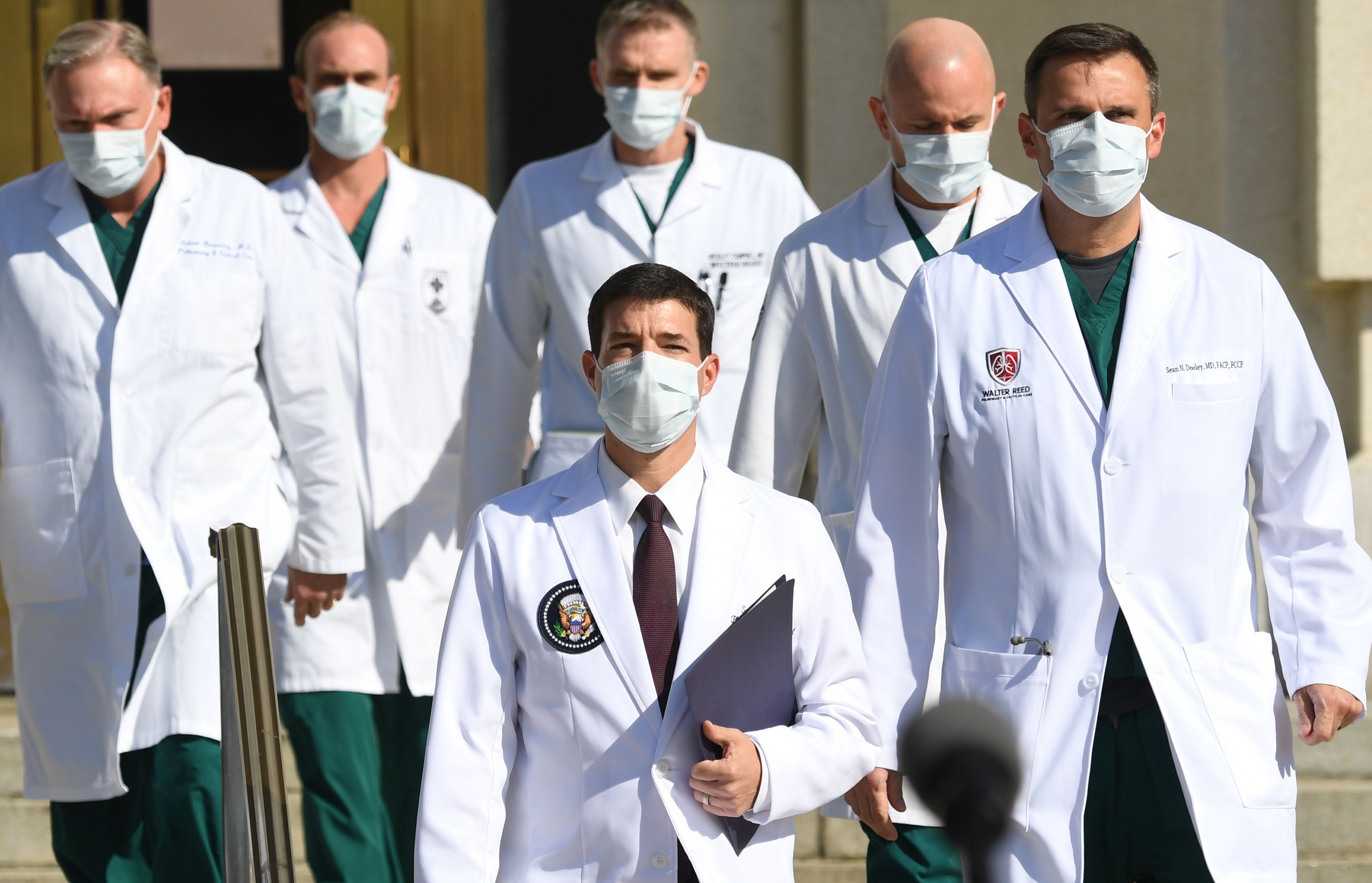COVID "long haulers" are wishing President Donald Trump the kind of smooth and speedy recovery they are not experiencing, and also offering words of caution.
"Just because you have a mild case doesn't mean you are in the clear," said Desa Hanchette, active in a Facebook group for COVID-19 Long Haulers, the term referring to those for whom the illness's impact has not ended, but still affects them in the long haul.
Last spring, Karen Stauffer of Oak Park became one of the first in Southern California to be hospitalized with COVID-19, remaining five days. Nearly seven full months later she still suffers from fatigue, and at times shortness of breath and other symptoms, she said.
Even many pleased and grateful for their recoveries say it took a while.
"For me, for a good month after the sickness, I was low energy, fatigued, not at my best," said Michael Lambert, longtime media mogul and avid mountain biker who was traveling in Europe with wife Jackie in March when both came down with Covid.
"I've never gotten over it," said Jackie Lambert, who still suffers from upper respiratory tract irritation in the trachea and for months earlier post-nasal drip. "I'm a long hauler."
"I've never gotten over it...I'm a Long Hauler."
If there is a take-away for President Trump from his COVID illness, the Lamberts hope it is a greater appreciation of the need for clear messaging on the need for wearing face covering in public.
"Mask on," said the Lamberts.
"I'm hoping when he comes out, he understands," said Pamela Laudermill of Menifee, who continues to grapple with fatigue five months her COVID-19
hospitalization.
"Some people don't recovery as quickly as others," said Michael Hirt, MD, who has personally treated at least 10 such patients, but sees no clear cut pattern to explain the different outcomes.
"We're not sure exactly why that is," said Dr. Hirt of the Center for Integrative Medicine in Tarzana. "Most of these people are otherwise healthy. A few have had other long term complications like diabetes or heart disease illnesses, but for the most part these are young, mostly women, who just can't seem to get over these symptoms."
Blood tests often reveal underlying inflammation, and in many cases, natural anti-inflammatories, available without prescription, have been helpful, he said.
Dr. Hirt sees a distinction between "Long Haulers" and patients who suffered more severe illness and required intensive intervention. Those are the patients at greater risk of damage to lungs, heart, and other internal organs.
Hospitalized for COVID early on at the Long Beach Veterans Administration,
Army veteran Yvette Paz recalls her doctors showing her the imaging of damage to her lungs. In summer, months after her discharge, she endured a bout of pneumonia.
"I don't go anywhere without my inhaler," said Paz last month as she marked half a year since her COVID hospitalization. "Six months ago, this was a foreign object."
Doctors say there can be a dangerous turning point for symptomatic COVID cases seven-10 days from onset, involving an immune reaction so extreme it is more
harmful than the infection itself.
Nevertheless, President Trump's medical team approved his discharge Monday from the Walter Reed National Military Medical Center, some 72 hours after he was admitted Friday.
"Don't be afraid of Covid. Don't let it dominate your life," the President declared in a tweet Monday before his hospital release, and again later in a video statement after his return to the White House.
Some who say COVID has changed their lives observed that the President's treatment has differed substantially from the care available to others. The president received doses of the anti-viral Remdesivir and the anti-inflammatory corticosteroid Dexamethasone at an earlier stage than indicated, and also was treated with Regeneron's new cocktail of polyclonal antibodies which is still limited to patients in trials, but was made available to the president under
a compassionate use exception.
"For those that were fortunate enough to get the kind of care that
he got, then he should consider himself extremely blessed," said
Hanchette.




